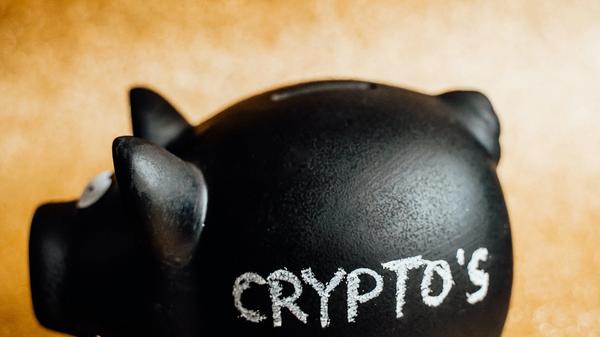This is a guest post by Tony of One Million Journey, his blog where he documents his experience towards financial independence.
The FIRE (Financial Independence, Retire Early) movement is certainly under test during a market downturn caused by the coronavirus crisis.
The main goal of the FIRE philosophy is to accumulate assets up to the point where they can provide enough money to cover living expenses. The movement has popularized the idea of using the 4% rule as a guide, where followers aim to accumulate 25 times estimated annual living expenses. Those seeking to become ‘FIRE(d)’ are mindful shoppers as they focus on maximizing their savings rate, and side hustlers as they find ways to increase their income.
But over the last few weeks many observers wonder if the COVID-19 crisis will knock followers off track, or even if a market downturn will push those already retired back into the 9-5 routine.
Like any other community, the FIRE movement encompasses a diverse range of lifestyles, investing approaches and retirement strategies. Some are more cautious and others more risk averse, but the vast majority of its members elaborate a detailed plan that projects several future outcomes.
The philosophy was born from a 1992 book “Your Money or Your Life” and gained traction after the Great Recession in 2008-2009, an event that made many individuals become conscious of the need to put their financial future in their own hands. This fact alone should clarify some observers' doubts with regard to the movement continuity. How can the cause of lighting the FIRE up, extinguish it?
However, as with almost everything in life, no one can deny the need for constant evolution and improvement, and FIRE is not an exception.
These are some facts and things to consider that could help FIRE pursuers during a market downturn, regardless of being at the start or at the end of the journey:
Consider your FIRE approach
FIRE is a catchy name, but the important part is the FI (financial independence) more than the RE (retire early). The “retire early” part can mean whatever the follower wants to. That is the magical part, you decide because if you are FI, you have options.
During these times it is important to have a clear definition of your FIRE approach according to the lifestyle the pursuer wants to live and their personality type – knowing who you really are should be the top priority.
Once you are clear on that you need to find out what FIRE type resonates with your desired lifestyle. Do you want to be a traditional FIRE, a Lean FIRE, a Fat FIRE or Barista FIRE? While taking a Fat FIRE approach means to save more and retire with a larger retirement pot, a Barista FIRE can quit their traditional 9-to-5 but still work part-time to cover expenses to protect their pot. This type can be riskier, as part-time jobs tend to be less stable. Therefore, building a small but consistent online business before leaving your work will give you more flexibility.
A Lean FIRE approaches a far more restricted lifestyle, practises minimalism and frugality and has a lower margin to reduce expenses in the future if the economy twists.
A different approach that is gaining supporters over the last few months is the Slow FI. Many people find the FIRE lifestyle too restrictive, and do not enjoy the journey towards financial independence. However, the key is to find a balanced savings rate that adapts with the way you want to live. Slow FI embraces the YOLO (You only live once) lifestyle while still being mindful about your finances and final destination: financial independence.
Prepare for low returns
Bear markets have lasted an average of 3 or 5 years, and we certainly do not know how long this market downturn will last, that leaves us a sense of uncertainty.
Financial advisors recommend having an extra cushion of as much as eight years of expenses in a combination of cash and income-bearing investments, such as bonds.
For those who are in the accumulation phase, allocating a larger percentage of their savings into an emergency fund may be a sensible approach to follow, as for many, global lockdowns have given an opportunity to spend less and save more.
Diversification plays another important role in terms of protecting your money during a downturn. Not all countries will be affected the same way, so allocating some of your capital in international stocks will lower down your risk of losing money. Similar applies for assets classes. Being 100% invested in stocks is risky. Diversifying your portfolio across bonds and real estate that generate passive income is a common option, as the investor does not need to rely on the performance of only one asset class.
Keep calm and carry on investing
Bear markets can bring the opportunity to enhance your investment returns. Many people make the mistake of stopping investing, cancelling their monthly contributions, or even selling part of their investments.
The FIRE investing philosophy is simple. Buy and hold for the long haul. When markets drop investors have the chance to buy assets at a retail price. Even if prices keep falling for two or three years, investing on a monthly basis is important to benefit from dollar cost averaging and compounding returns over time.
Markets can be noisy, but it is essential to calibrate your emotions and avoid panic selling, especially when you see the size of losses in your account keep increasing. Remember, bear markets do not last forever.
If you find yourself with a lack of internal peace, it may be appropriate to rebalance down the risk of your portfolio allocation. Any anxiety symptoms show that you do not tolerate your current risk exposure well.
Conclusions
During this COVID-19 crisis many people may lose their jobs or suffer from a pay cut. Same as it happened in 2008, some workers will suffer financially, especially hitting hard on those who were carrying high amounts of debt, but this situation will raise the attention on the necessity to control one's own finances, to put money to work for us and not against us, and even many will start digging hard to stabilize their financial future and become financial independent.
Recessions are part of the economic circle, and although no one likes them are essential for a healthy long-term stock market return. We should embrace them.
Whether you are at the beginning, midway or already FIRE(d), a market downturn may be the perfect time to reassess your approach, your goals and put your financial independence journey on the right track.
The COVID-19 crisis is here to strengthen the FIRE community, not to vanish it.


